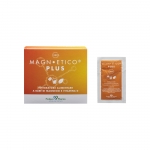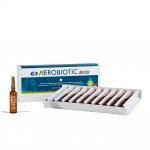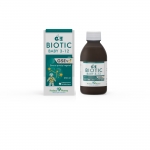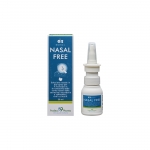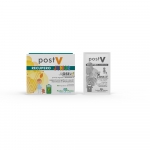Ours is a holistic approach that does not hinder the physiological processes of the body. It's an approach that encourages the restoration of balance, by combatting the causes of symptoms as efficiently as possible and ensuring fast relief.
Symptoms and relief
SELECT YOUR NEED
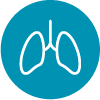
Respiratory system
THE RESPIRATORY SYSTEM
THE RESPIRATORY SYSTEM is a complex apparatus of areas and organs that spans multiple levels; the cilia cells, found in the airways from the nose to the terminal bronchioles, are covered with a thin layer of mucus that hydrates them and keeps them clean.
Viral and/or bacterial microbial infections can alter the mucociliary balance. These lead to irritation and inflammation, causing hypersecretion with increased mucus viscosity and the accumulation of mucus in various parts of the airways.
ISSUES:
UPPER AIRWAYS:
- COLDS
- OTITIS MEDIA
- SINUSITIS
- ADENOIDITIS
- TONSILLITIS
- PHARYNGITIS
- LARYNGITIS
LOWER AIRWAYS:
- TRACHEITIS
- BRONCHITIS
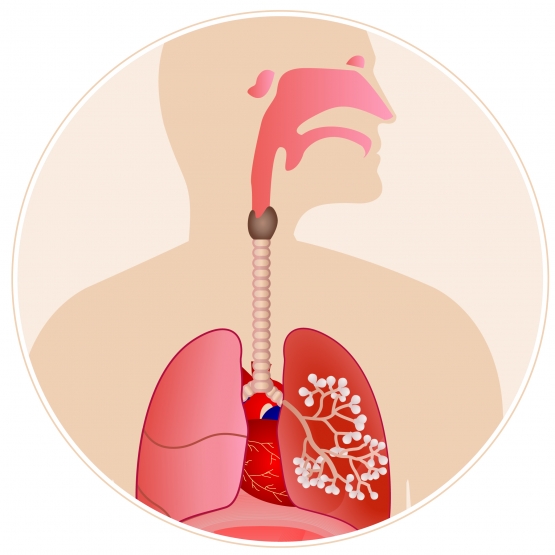
SYMPTOMS:

The term sinusitis refers to inflammation of the mucous membrane lining the paranasal sinuses, cavities found within the bones of the skull which are in direct communication with the nasal passages through openings called "ostia." As a result of inflammation, the mucous membranes of the sinuses swell and secrete copious amounts of mucus.
Mucus has a protective function: it is meant to trap and promote the expulsion of the agents (microbial, irritative, etc.) that triggered the inflammatory phenomenon. However, unfortunately, as a result of the congestion that arises, the openings of the ostia become narrower, hindering or even preventing the drainage of mucus from the nasal passages through which it is meant to be expelled. As a result, the mucus ends up stagnating inside the sinuses, becoming a breeding ground for bacteria, viruses or fungi. If this happens, overinfection arises in addition to the inflammation.
CAUSES AND PREDISPOSING FACTORS
Excluding the presence of nasal polyps or special anatomical conformations that hinder drainage of the nasal passages and require surgery, sinusitis is generally the consequence of a poorly-treated cold. What lies at its core is certainly a bacterial, viral or fungal attack, or an irritant agent that has triggered the production of mucus; this mucus, inadequately drained, becomes a favorable environment for the proliferation of microorganisms that can invade the mucosa of the sinuses, triggering inflammation that generally becomes chronic.
The condition of the body's immune system is crucial: a healthy body should be able to resolve the cold infection within 1- 2 weeks without the complication of sinusitis. Recurrent sinusitis is often associated with conditions of gut dysbiosis, caused by a processed, nutrient-poor diet, "dirty" with toxins, preservatives, dyes and heavy metals. There may also be an underlying food intolerance to certain foods, often unrecognized.
For instance, milk intolerance is a major contributor to respiratory problems. Undigested milk and dairy products lead to large amounts of mucus being produced in the lower and upper respiratory tracts, causing weakness and a frequent tendency to become ill.
If the intestinal bacterial flora is in a condition of dysbiosis, this can also trigger the development of chronic candidiasis. In immunocompromised individuals, fungal infection can spread to other mucous membranes of the body, including the inner lining of the sinuses, leading to fungal sinusitis. Therefore, the treatment of sinusitis absolutely cannot disregard these aspects which amount to a real dietary "cure."
Other causes of sinusitis may be found in the frequent use of swimming pools. The chlorine found in the water can trigger a form of vasomotor rhinitis, resulting in congestion, swelling and the stagnation of mucus in the sinuses. This process can also arise from contact with dust, cigarette smoke, irritants or allergens, or from suddenly moving from a very cold place to a very warm place or vice versa.
Symptoms
Symptoms of sinusitis mainly include pain and a sense of pressure to the area of the face corresponding to the affected sinus or sinuses. Pain above the upper dental arch, often confused with tooth issues, can be caused by inflammation of the maxillary sinus; a frontal headache, with pain in the eyes and temples, may be related to an infection of the spheroidal and frontal sinuses. Other symptoms of sinusitis include a stuffy nose, reduced sensations of taste and smell, a cough with phlegm, fever and swelling around the eyes.
BROAD-SPECTRUM ANTIMICROBIAL ACTION
GRAPEFRUIT SEED EXTRACT
- Effective against viruses and bacteria responsible for respiratory ailments: Haemophilus influenzae, Staphylococcus aureus, Influenza virus A2, etc.
- Selective, targeting pathogens and not affecting the physiological microflora
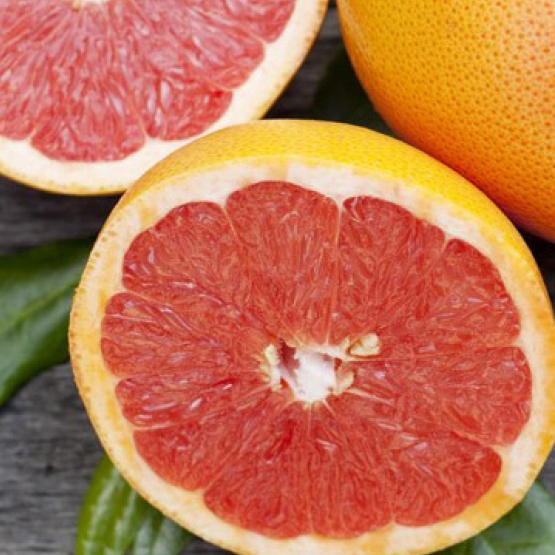
NARROW-LEAVED CONEFLOWER (ECHINACEA ANGUSTIFOLIA)
Activates phagocytosis and slows the spread of pathogens due to its rich phytocomplex capable of inhibiting hyaluronidase.
The alkylamides have anti-inflammatory properties.
EXPECTORANT AND SECRETION DISSOLVING ACTION
BRECKLAND THYME (THYMUS SERPYLLUM)
Balsamic, expectorant and phlegm-inhibiting action.
ELECAMPANE (INULA HELENIUM)
Alters bronchial secretions.
ANTISPASMODIC ACTION
SUNDEW (DROSERA ROTUNDIFOLIA)
Rich in naphthoquinones, it has a calming effect on coughs.
BALSAMIC ACTION
MOUNTAIN PINE (PINUS PUMILIO)
"Pumilio" Essential Oil is rich in volatile compounds, which are beneficial to the respiratory mucosa.
COMMON THYME (THYMUS VULGARIS)
Contains thymol, a phenolic terpene, highly concentrated (to 50%); it is also indicated for use in children.
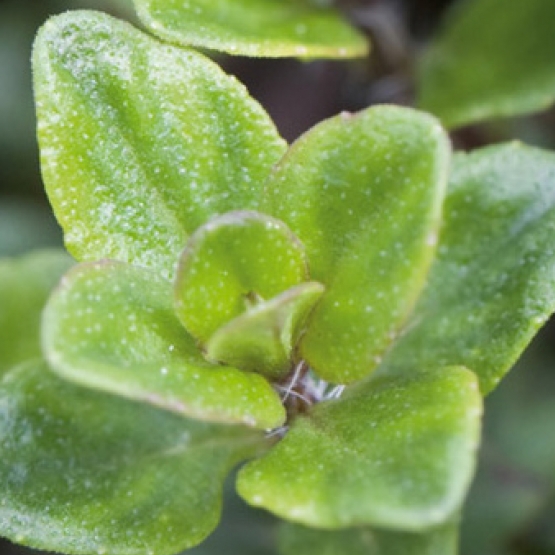
LIFESTYLE - NUTRITION - RESPIRATORY SYSTEM
The human body is almost always able to overcome the attacks from viruses, bacteria and fungi, as long as we keep it healthy and give it proper attention by ensuring it has all the elements it needs to function properly (vitamins, minerals, antioxidants, fats, etc.). One of the indispensable factors is making conscious choices about food and a willingness to adopt balanced behavior throughout the year, not only in situations of necessity when the symptoms of bronchitis, cold, flu, cough, sore throat, earache, etc. are already present. To strengthen the natural defenses, it is of fundamental importance to adopt a balanced diet which is also rich in fiber: this part of food that the digestive system cannot digest represents the main and preferred nourishment for the intestinal bacterial flora that helps us protect ourselves from external agents. Accordingly, we recommend whole grains, vegetables and fruits, both cooked and raw. These are valuable foods for their fiber content, but also for the supply of vitamins, minerals and antioxidants.
On the other hand, foods that weaken the immune system and the intestinal flora should be avoided:
- simple sugars and refined carbohydrates, especially sweets, candies, snacks, sugary drinks, refined grains (white pasta and bread, as well as all baked goods made from refined flour)
- trans-hydrogenated fats and excess saturated fats, especially fried foods, cured meats, processed meats, dairy products and red meat.
- high-calorie foods that are rich in unhealthy fats such as hydrogenated fats (lipids that undergo a transformation known as hydrogenation to be suitable for the needs of the food industry), which are responsible for worsening the inflammation
THE ADVANTAGES OF
- FRUITS AND VEGETABLES. By consuming fruits and vegetables on a daily basis, elements such as antioxidants, vitamins, minerals and fiber are supplied, which are useful in controlling and lessening the overall state of inflammation, thus helping the immune system to be ready and efficient when needed. IMPORTANT. It is essential to respect the seasonality of foods because fruits and vegetables from greenhouses, or imported from distant countries, rarely reach the quality of naturally ripened ones in terms of the content of vitamins, minerals and antioxidants. IMPORTANT: Cooking fruits and vegetables at high temperatures significantly reduces the concentration of vitamin C and all volatile vitamins.
- DRIED FRUIT. Nuts (especially pecans), pine nuts, almonds, cashews, etc. are valuable sources of zinc, a mineral which is essential for the body, fulfilling a number of biological roles, most importantly that of supporting the immune system. It is important to avoid zinc deficiency, which is quite common due to an unvaried diet rich in refined foods
- FERMENTED FOODS. Sauerkraut, vegetable yogurt with no added sugars, tempeh (a food derived from soybean fermentation), water kefir, etc. contain cultures of live bacteria, so-called probiotics, which contribute to the healthy intestinal flora and thus strengthen the immune system.

OTHER SUPPORTERS OF THE IMMUNE SYSTEM
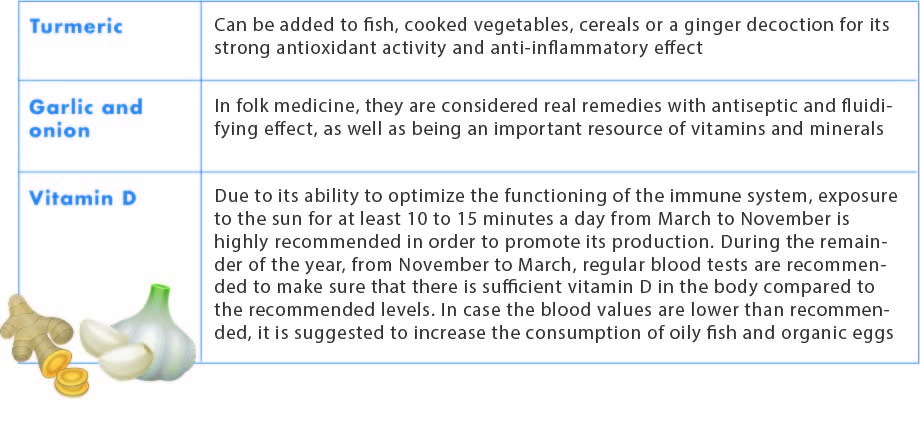
- consuming foods of organic and/or 0-km origin
- in accordance with the above advice, following a varied diet, favoring the consumption of fruits and vegetables, preferably in season, easily digestible proteins (small fresh fish, white meat, eggs), legumes, pumpkin seeds, sunflower, flax, chia, etc., walnuts, almonds, hazelnuts, etc.
- consuming cereals, preferably whole grain but not only, because in some cases fiber prevents the absorption of minerals and other nutrients, semi-wholegrain cereals and pseudocereals (quinoa, buckwheat, amaranth)
- preferring foods that are sources of omega-3 fatty acids, such as flax oil, hemp oil, oily fish (mackerel, sardines, sardines etc.), chia seeds, flax seeds, etc.
- staying adequately hydrated. Water requirements vary from individual to individual and change according to different lifestyles, type of activity and diet. An adult should generally drink 2 liters of water per day to maintain good health. Water is an essential element for the body because it regulates various biological functions. Therefore, it is important to maintain proper hydration, especially during the summer season, during sports activities and in all situations in which a lot of fluids are lost.
- avoiding abuse of gluten-containing foods, packaged foods and fried foods
- limiting sugar, sugary drinks, refined grains (white bread, white pasta, white rice, etc.)
- avoiding hydrogenated fats, limiting red meat, milk and its derivatives, and salt. When consuming them, prefer those of high quality
The notions and advice offered herein are for educational purposes only and cannot under any circumstances replace medical advice. For a complete diet, it is necessary to consult a nutritionist, who, after appropriate clinical and instrumental examination, will be able to identify the needs of the person concerned and put together a personalized diet plan.
